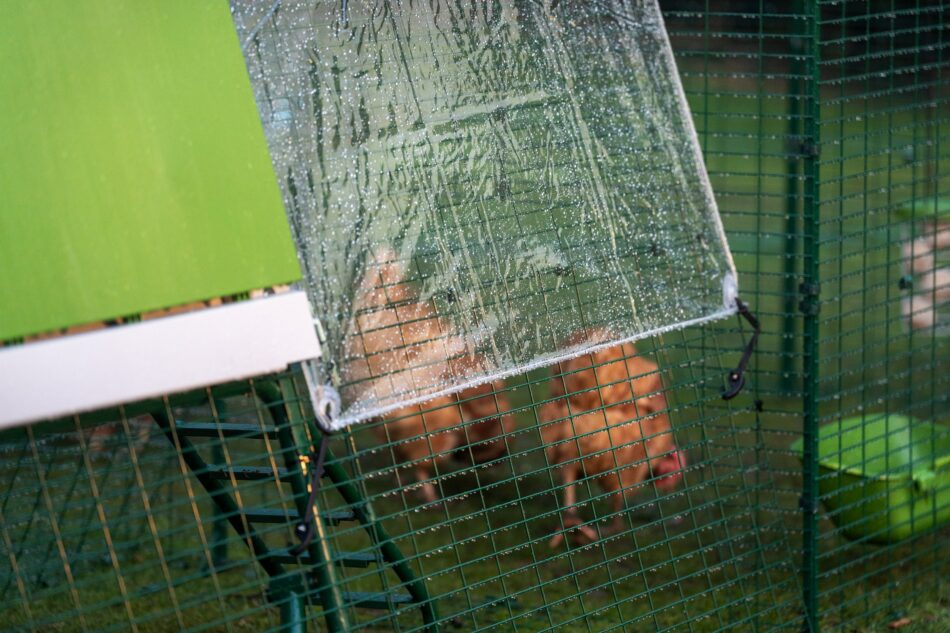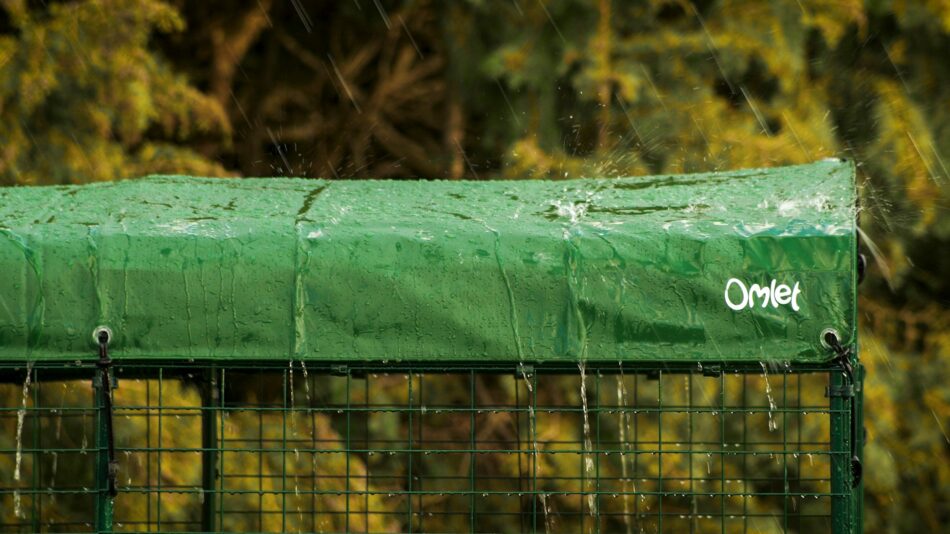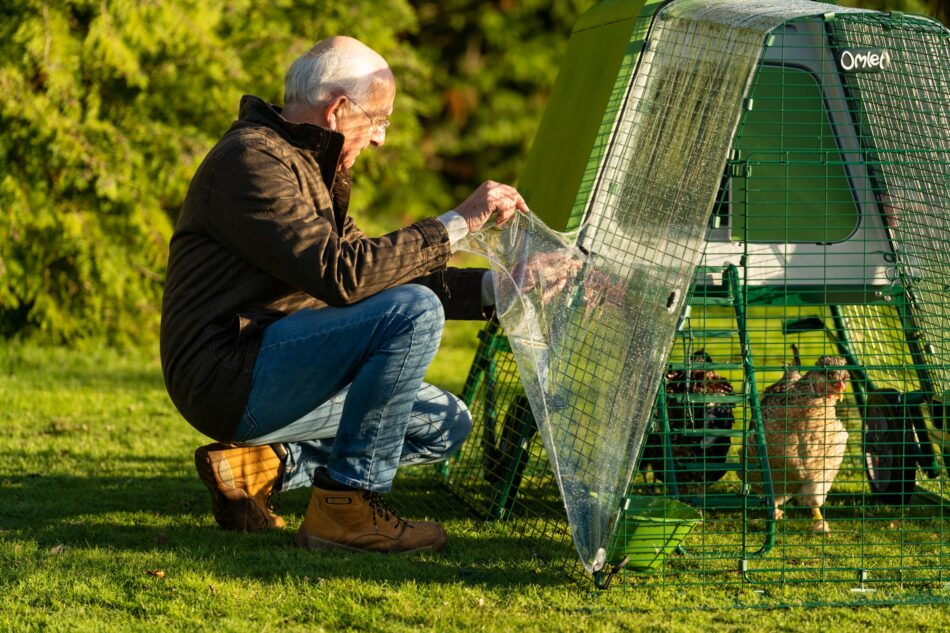Do chickens like the rain?
 Have you ever wondered if your chickens like the rain? Hens don’t put on rain hats and boots to weather a spring shower, but some chickens are more willing to stay out in the precipitation than others. Whether it be rain showers or all-out downpours, at some point all chicken keepers will have to help their hens through wet weather. Thankfully, Omlet has the products that keep chickens safe – whatever the weather.
Have you ever wondered if your chickens like the rain? Hens don’t put on rain hats and boots to weather a spring shower, but some chickens are more willing to stay out in the precipitation than others. Whether it be rain showers or all-out downpours, at some point all chicken keepers will have to help their hens through wet weather. Thankfully, Omlet has the products that keep chickens safe – whatever the weather.
Rain and chicken safety
You may have some hens that are more than happy to hang out in a rain shower, or peck through the puddles in the aftermath. But, some chickens may avoid precipitation at all costs. As a general rule, hens will seek shelter once a sprinkle becomes more of a drenching experience than an enjoyable shower.
Rain isn’t necessarily dangerous for your hens so long as the temperatures are moderate. The most dangerous time for a chicken to become wet is during cold weather, as hens need to be able to fluff their feathers up to trap air around their bodies as insulation. If they’re wet, feathers will be heavy and lay flat, which keeps a hen’s feathers from doing their job.
Our new Walk In Chicken Run Rain Covers encompass the entire top of your flock’s run with a waterproof barrier to help keep the rain and snow out. No walk in run? No problem – our new Eglu Go Up Rain Covers will keep attached runs free from moisture as well. Keeping precipitation from falling directly on your hens is the best way to help them stay warm and dry.
Other dangers of rain for chickens
Aside from rain during cold weather, too much moisture can spell other trouble for chickens. Muddy conditions in the run opens your flock’s feet to bacteria and fungal infections, and creates unsanitary conditions. And, hens that stay wet or in damp houses for extended periods of time can develop upper respiratory infections. These primarily develop from mold or mildew growing in their coop, which is why a chicken coop that will not absorb moisture is so important to your hens’ health.
Puddles may be fun for kids to splash in, but chickens may drink from rainwater that has collected on the floor of their run. Muddy puddles can contain harmful bacteria and are not ideal for your flock to drink from. In addition to waterproof chicken run covers, bedding should be added to the floor of any runs that don’t have enough grass to prevent the ground from becoming excessively muddy.
Do any chicken breeds like the rain?
Some breeds of chickens struggle more than others in damp weather. For example, Silkie chickens have special feathers that do not repel water, so they can quickly become soaked through to their skin. Polish chickens are another breed that does not do well in wet weather, as they have loosely grouped feathers that do not keep them dry. Other breeds, such as Rhode Island Reds have tightly grouped feathers that help repel rainwater. Other hardy breeds such as Plymouth Rocks and Australorps have better tolerance in extreme temperatures, making them more resilient in damp conditions.
Are chicken feathers waterproof?
A chicken’s feathers are weather resistant, but not weatherproof. The tighter the feather grouping, the more weather resistant a hen’s plumage is. Once even tightly grouped feathers become saturated, water begins to seep through to a hen’s skin and there it begins to affect body temperature. Wet feathers are heavy, so chickens can’t fully fluff themselves in order to dry off once their skin becomes wet. In the wintertime, this can quickly lead to hypothermia. Being a wet hen in summer months is more of a nuisance than a danger, but can still lead to discomfort.
Most hens are aware of their limitations, and you’ll see most head for shelter when they feel they are getting too saturated. However, sometimes hens get caught out in a downpour. If the weather is below 60℉, bring soggy hens inside and towel them dry, being careful to move in the direction of their feathers. Wait for them to dry fully before letting them back outside.
How to keep your flock protected
Our new Eglu Go Up rain covers come in different length options to offer full top-to-bottom coverage, or a ⅔ length to allow a breeze through the bottom third of the run. The walk in chicken run covers now offer full-length coverage in a variety of sizes to fit across the entire top of the run. Continuous coverage means no gaps, dripping, or seams for the wind to grab.
Just like our run covers, Omlet’s chicken products are designed to perform and protect. Going above and beyond their intended purpose, our Eglu Cube has withstood much more than rain! That sort of performance is what we expect from all of the products we invent.
Omlet and your chickens’ home
We strive to create top-quality products that keep your chickens safe and make caring for them enjoyable. Our line of chicken coops are designed to withstand the elements, weather, and anything else life throws at them. Combine our resilient coops with a heavy duty walk in chicken run maximum protection and comfort for your flock – and peace of mind for you.
This entry was posted in Chickens

